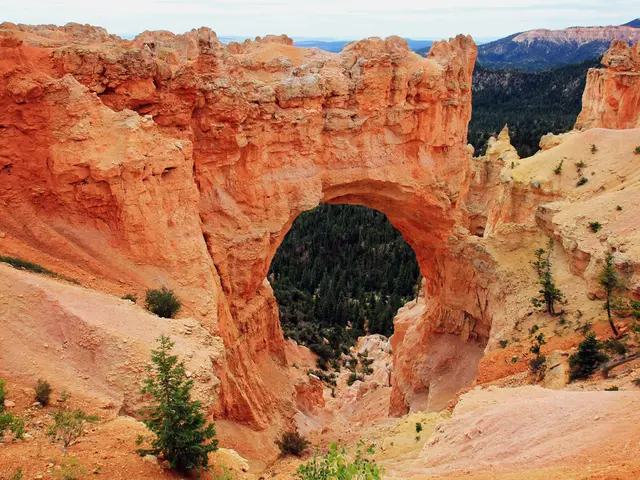Macau seeks to diminish compulsive gambling issues
Macau Advances Ambitious Plans to Diversify Economy Beyond Gambling
Macau, the world's largest gambling hub, is venturing into a new chapter aimed at reducing its reliance on gambling revenues. Four significant projects, collectively valued at 4.2 billion EUR, were announced by the region's chief executive, Sam Hou Fai.
The city, which presently generates 80% of its tax revenues from casinos, sees this one-sided economy as a structural risk. The long-term goal is to create a more sustainable economy and contend with escalating competition in Asia and other international challenges.
Macau's Special Status
Since its handover from Portugal in 1999, Macau has been a Special Administrative Region (SAR) of China, much like Hong Kong. This status grants it a unique legal system, separate customs and tax policy, and extensive economic and political autonomy. This special standing allows Macau to independently sign international agreements, operate an open economy, and serve as a bridge between China and the West. Within the Greater Bay Area, Macau enjoys unique privileges, such as duty-free status as a free port or the special regulations of the Hengqin cooperation zone.
Venturing Beyond Gambling
Introduced at a media event, the major projects are part of a long-term strategy for promoting moderate economic diversification, as outlined in China's President Xi Jinping's guidelines. The key projects are:
Macau-Hengqin International Education City
This is the largest project, with nearly 200 billion MOP (approximately 22 billion EUR) allocated. The University of Macau's new campus is currently under construction, with operations planned to commence in 2028. The second phase will see the expansion of the University of Tourism into the new university city.
International Cultural and Tourism Quarter
For the construction of an international cultural and tourism quarter, 120 billion MOP (approximately 13.2 billion EUR) have been budgeted. The project is slated for the area between the Macau Peninsula and Taipa, currently underutilized in terms of urban planning. The district will feature a National Museum, an international center for performing arts, and a museum of modern art.
Airport Expansion and Logistics Hub
The Macau International Airport is set for expansion at a cost of 60 billion MOP (around 6.6 billion EUR). Targeted initiatives include land reclamation to extend the runway and upgrading airport infrastructure. The goal is to make Macau an international aviation hub on the western bank of the Pearl River and provide cross-border logistics and transport solutions for the high-tech industry in the Greater Bay Area.
Technology Park: Space for Research and Innovation
The planned Macau Technology R&D Industrial Park aims to attract research centers of international corporations. Tailored infrastructure and incentives are earmarked to permanently establish high-tech companies from home and abroad in Macau.
According to Sam Hou Fai, these projects will be supported by new civil and economic regulations tailored to the Hengqin cooperation zone. This is intended to provide investors with legal certainty, predictability, and stability.
The focus on diversification follows Macau's growing identification of the Hengqin zone as a strategic asset for its future economic development. Macau intends to strengthen its connection with neighboring cities and promote genuine economic activities in Hengqin, where many registered companies have yet to commence operations[1]. Six interdisciplinary steering committees and working groups have been established for efficient cross-departmental project management.
[1] Macau News, "Sam Hou Fai: Macau Must Strengthen Connection with Neighboring Cities," themacaonews.com, May 29, 2025.[2] South China Morning Post, "Macau Is Banking on a Tech and Entertainment Diversification Strategy. Will It Work?," scmp.com, June 1, 2022.[3] Nikkei Asia, "Macau Seeks Deeper Integration with Hengqin," asia.nikkei.com, October 26, 2020.[4] Financial Times, "Macau Planning $4.2bn Spending Spree on Development Projects," ft.com, May 1, 2025.[5] GGRAsia, "Macau Government Expects Gaming Revenue Recovery in 2025," ggrasia.com, January 20, 2022.
What are the key projects Macau is pursuing to diversify its economy beyond gambling as part of its long-term strategy? The projects include the Macau-Hengqin International Education City, the International Cultural and Tourism Quarter, Airport Expansion and Logistics Hub, and Technology Park for Research and Innovation.










